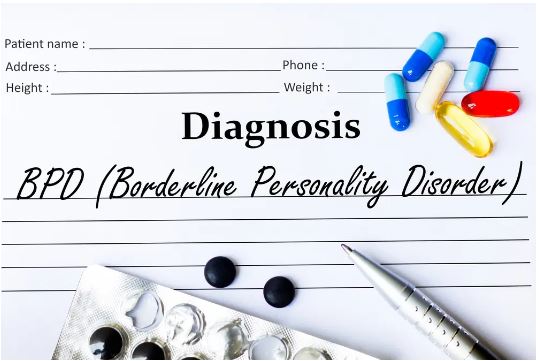Borderline personality disorder (BDP) is a mental health condition that affects a person’s mood and how they interact with others. It impacts how a person feels and thinks about himself and others, which can cause many problems in their everyday life.
The experiences that come with BPD are different for different people. You may experience overwhelming and intense emotions, and you may also experience difficulties with your sense of identity and relationships; everything seems to hurt more than it should. However, another person may be experiencing an extreme fear of abandonment, trouble regulating their emotions, especially anger and extreme mood fluctuations.
Other names for this condition include emotional intensity disorder (EID), emotionally unstable personality disorder (EUPD), and borderline pattern personality disorder (borderline pattern PD).
Causes
There is no apparent reason why some people develop borderline personality disorder; it is more diagnosed in women than in men, and it appears to result from traumatic experiences or genetic or brain abnormalities.
Genetics
Studies have shown that this mental disorder can run in families; if any member of your family has suffered from BDP, you are more likely to experience it as well.
Brain Abnormality
Some research has shown that changes can occur in some brain regions that control emotions, impulses and aggression, and changes can also occur in brain chemicals that regulate mood, such as serotonin. All these factors can make a person develop BPD.
Childhood Trauma
People who have experienced trauma, especially during childhood, may develop BPD later in life. Experiences such as rape, parental substance use disorder, poor maternal attachment, maternal separation, inappropriate family boundaries, or physical abuse during childhood can trigger borderline personality disorder.
Symptoms of Borderline Personality Disorder
The symptoms of this condition may include:
- Consistent feelings of emptiness.
- An intense fear of abandonment; people with BPD can go to extreme lengths to avoid perceived separation or rejection.
- Rapid changes in self-identity and self-image include inconsistent goals and values.
- A pattern of unstable relationships.
- Impulsive and risky behaviour.
- Stress-related paranoia and temporary disconnection from reality.
- Suicidal threats or self-injury, often in response to fear of rejection or separation.
- Wide mood swings can include feelings of intense happiness, anxiety, shame or irritability.
- Intense anger, losing your temper, being bitter or sarcastic or engaging in physical fights.
Treatment
The treatment for BPD includes psychological therapies and medical treatment. The therapies can involve group or individual therapies by professionals. Over time, people with borderline personality disorder are expected to overcome the symptoms. The treatment may last up to a year, but full recovery is expected.



